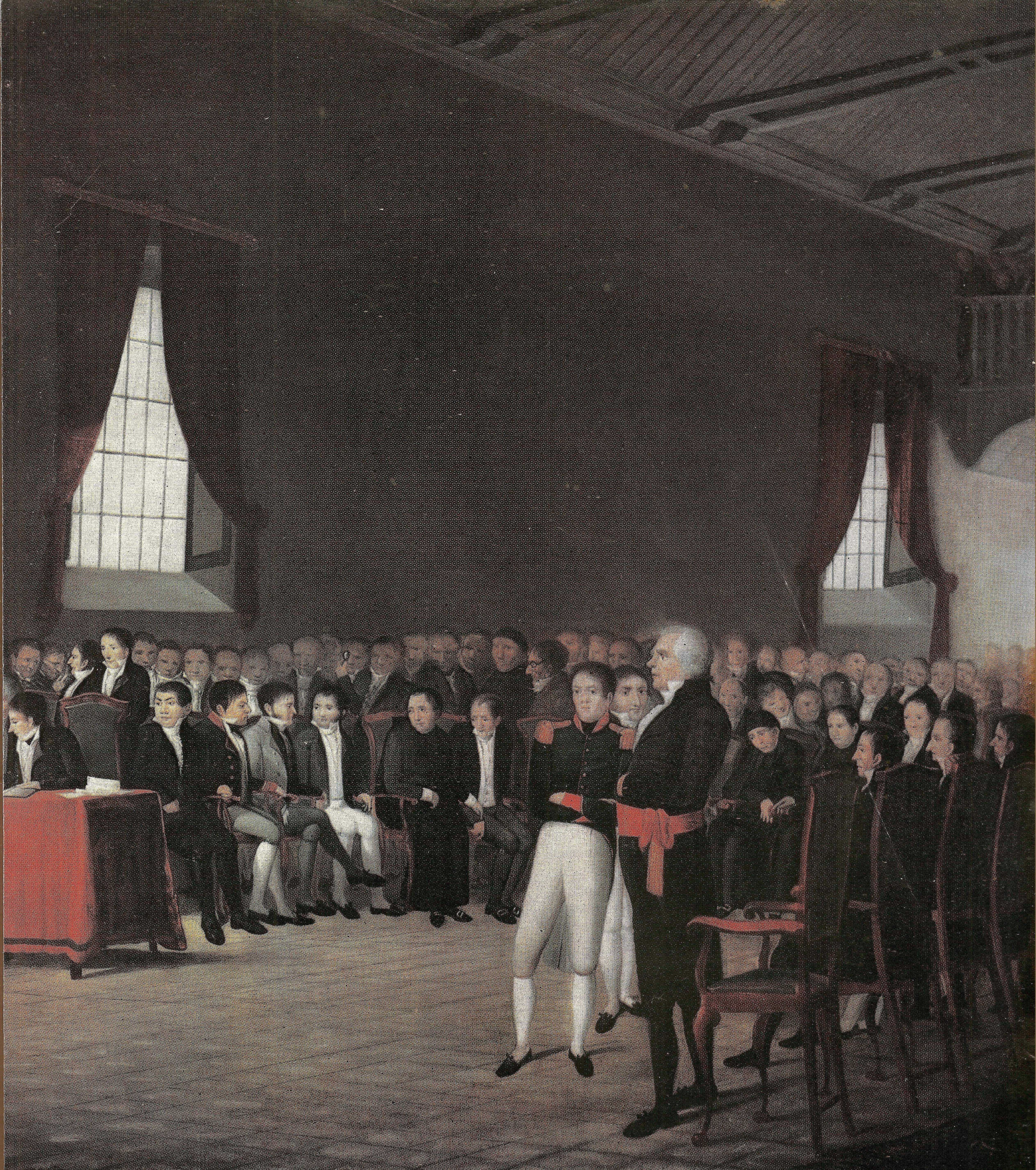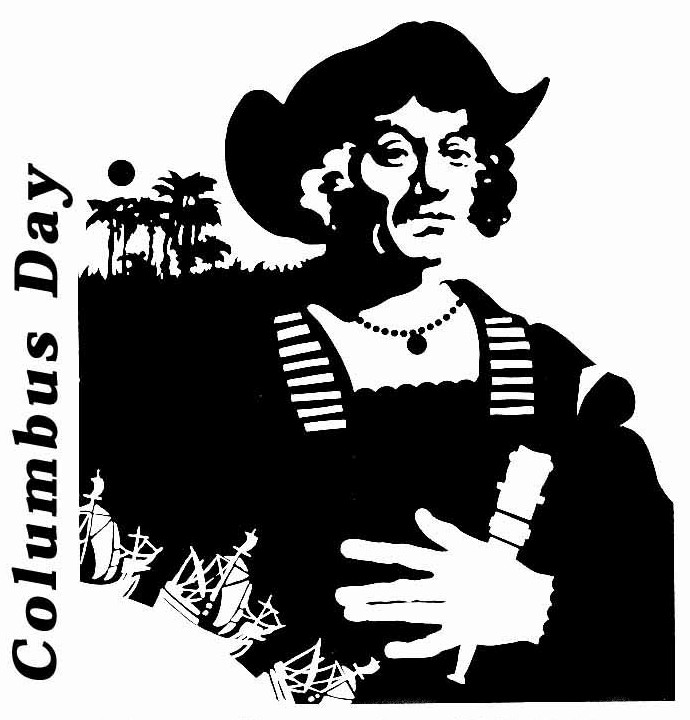|
Tamanaco
Tamanaco was a native Venezuelan chief, who as leader of the Mariches and Quiriquires tribes led (during part of the 16th century) the resistance against the Spanish conquest of Venezuelan territory in the central region of the country, specially in the Caracas valley. He is one of the most famous and best known Venezuelan Caciques (Spanish: ''Indian chief''). The city of Santiago de León de Caracas, which had been founded in 1567 by Diego de Losada, was continuously harassed and the subject of raids conducted by the local tribes. In 1570 when Diego de Mazariegos took charge as governor of the province of Venezuela, he made it a priority to pacify the territories. Following the death of Guaicaipuro, Tamanaco had risen as the new leader of the Mariches and Quiriquires. By 1573 Tamanaco and his group of natives had become such a problem that reinforcements came from Spain and other Spanish islands in the Caribbean with the sole purpose of taking care of this matter. Soon after c ... [...More Info...] [...Related Items...] OR: [Wikipedia] [Google] [Baidu] |
History Of Venezuela
The history of Venezuela reflects events in areas of the Americas colonized by Spain starting 1522; amid resistance from indigenous peoples, led by Native caciques, such as Guaicaipuro and Tamanaco. However, in the Andean region of western Venezuela, complex Andean civilization of the Timoto-Cuica people flourished before European contact. In 1811, it became one of the first Spanish-American colonies to declare independence, which was not securely established until 1821, when Venezuela was a department of the federal republic of Gran Colombia. It gained full independence as a separate country in 1830. During the 19th century, Venezuela suffered political turmoil and autocracy, remaining dominated by regional ''caudillos'' (military strongmen) until the mid-20th century. Since 1958, the country has had a series of democratic governments. Economic shocks in the 1980s and 1990s led to several political crises, including the deadly Caracazo riots of 1989, two attempted coups in 199 ... [...More Info...] [...Related Items...] OR: [Wikipedia] [Google] [Baidu] |
Venezuela
Venezuela (; ), officially the Bolivarian Republic of Venezuela ( es, link=no, República Bolivariana de Venezuela), is a country on the northern coast of South America, consisting of a continental landmass and many islands and islets in the Caribbean Sea. It has a territorial extension of , and its population was estimated at 29 million in 2022. The capital and largest urban agglomeration is the city of Caracas. The continental territory is bordered on the north by the Caribbean Sea and the Atlantic Ocean, on the west by Colombia, Brazil on the south, Trinidad and Tobago to the north-east and on the east by Guyana. The Venezuelan government maintains a claim against Guyana to Guayana Esequiba. Venezuela is a federal presidential republic consisting of 23 states, the Capital District and federal dependencies covering Venezuela's offshore islands. Venezuela is among the most urbanized countries in Latin America; the vast majority of Venezuelans live in the cities of the n ... [...More Info...] [...Related Items...] OR: [Wikipedia] [Google] [Baidu] |
Diego De Losada
Diego de Losada y Cabeza de Vaca (1511 – 1569) was a Spanish conquistador and the founder of Santiago de León de Caracas, the current capital of Venezuela. Losada was born in Rionegro del Puente, in what is now the province of Zamora. He reached Puerto Rico in 1533. Losada founded Caracas in 1567 after defeating ''Tamanaco'', the Mariche chief. He died two years later, at Borburata Borburata is a small coastal town in Carabobo state, Venezuela, located on the Caribbean Sea. It was long a destination of indigenous peoples, who would gather salt at the sea. It was colonized by the Spanish in the 16th century, but suffered so m .... References 1511 births 1569 deaths People from the Province of Zamora Colonial Venezuela Spanish explorers Spanish city founders 16th-century Spanish people Spanish conquistadors {{Venezuela-bio-stub ... [...More Info...] [...Related Items...] OR: [Wikipedia] [Google] [Baidu] |
Mariche
Mariche is the name of a former native Venezuelan tribe. Not much information from them as a tribe has survived to the present day. It is known that their descendants lived in what is now called Filas de Mariches, distrito Sucre, Estado Miranda and in the area of El Hatillo both near Caracas, Venezuela, where they lived very close to several Karina (Carib) tribes. Reports by some scholars claim that Mariche natives inhabited a site called Guayana long before the discovery of South America by the Spaniards Spaniards, or Spanish people, are a Romance ethnic group native to Spain. Within Spain, there are a number of national and regional ethnic identities that reflect the country's complex history, including a number of different languages, both in .... One of their more celebrated chiefs was Tamanaco who led them in the fight against the Spanish conquistadors during the 1560s and 1570s. Indigenous peoples in Venezuela {{SouthAm-ethno-group-stub ... [...More Info...] [...Related Items...] OR: [Wikipedia] [Google] [Baidu] |
Dia De La Raza
Columbus Day is a national holiday in many countries of the Americas and elsewhere, and a federal holiday in the United States, which officially celebrates the anniversary of Christopher Columbus's arrival in the Americas on October 12, 1492. Christopher Columbus ( it, Cristoforo Colombo ) was a Genovese-born explorer who became a subject of the Hispanic Monarchy to lead a Spanish enterprise to cross the Atlantic Ocean in search of an alternative route to the Far East, only to land in the New World. Columbus's first voyage to the New World on the Spanish ships ''Santa María'', ''Niña'', and ''La Pinta'' took about three months. Columbus and his crew's arrival in the New World initiated the colonisation of the Americas by Spain, followed in the ensuing centuries by other European powers, as well as the transfer of plants, animals, culture, human populations, and technology between the New and Old Worlds, an event referred to by some late 20th‐century historians as the C ... [...More Info...] [...Related Items...] OR: [Wikipedia] [Google] [Baidu] |
Indigenous People Of The Guianas
*
*
{{disambiguation ...
Indigenous may refer to: *Indigenous peoples *Indigenous (ecology), presence in a region as the result of only natural processes, with no human intervention * Indigenous (band), an American blues-rock band * Indigenous (horse), a Hong Kong racehorse * ''Indigenous'' (film), Australian, 2016 See also * Disappeared indigenous women *Indigenous Australians * Indigenous language * Indigenous religion * Indigenous peoples in Canada *Native (other) Native may refer to: People * Jus soli, citizenship by right of birth * Indigenous peoples, peoples with a set of specific rights based on their historical ties to a particular territory ** Native Americans (other) In arts and enterta ... [...More Info...] [...Related Items...] OR: [Wikipedia] [Google] [Baidu] |
Indigenous Leaders Of The Americas
*
*
{{disambiguation ...
Indigenous may refer to: *Indigenous peoples *Indigenous (ecology), presence in a region as the result of only natural processes, with no human intervention * Indigenous (band), an American blues-rock band * Indigenous (horse), a Hong Kong racehorse * ''Indigenous'' (film), Australian, 2016 See also * Disappeared indigenous women *Indigenous Australians * Indigenous language * Indigenous religion * Indigenous peoples in Canada *Native (other) Native may refer to: People * Jus soli, citizenship by right of birth * Indigenous peoples, peoples with a set of specific rights based on their historical ties to a particular territory ** Native Americans (other) In arts and enterta ... [...More Info...] [...Related Items...] OR: [Wikipedia] [Google] [Baidu] |
1573 Deaths
Year 1573 ( MDLXXIII) was a common year starting on Thursday (link will display the full calendar) of the Julian calendar. Events January–June * January 25 – Battle of Mikatagahara in Japan: Takeda Shingen defeats Tokugawa Ieyasu. * January 28 ** Articles of the Warsaw Confederation are signed, sanctioning religious freedom in Poland. ** The Croatian–Slovene Peasant Revolt breaks out against the oppressive nobility; the revolt is quelled violently by February 15 and Matija Gubec, leader of the rebellion, publicly executed in Zagreb. * February–March – The siege of Noda Castle takes place in Japan. * March 7 – The Ottoman–Venetian War (1570–1573) is ended by a peace treaty, confirming the transfer of control of Cyprus from the Republic of Venice to the Ottoman Empire, and also confirming Turkish occupation of the more fertile region of Dalmatia. * May 11–May 16, 16 – The Henry III of France, Duke of Anjou is elected to the th ... [...More Info...] [...Related Items...] OR: [Wikipedia] [Google] [Baidu] |
Día De La Resistencia Indígena
DIA or Dia may refer to: Government establishments * Defense Intelligence Agency, United States foreign military intelligence agency * Defence Intelligence Agency (India) Indian foreign military intelligence agency * Department of Internal Affairs (New Zealand) * Department of Indian Affairs, Canadian federal department * Defence Intelligence Agency (Nigeria) * Defense Intelligence Agency (South Korea) * ''Direzione Investigativa Antimafia'', an Italian law-enforcement agency Organizations and businesses Airports * Davao International Airport (DVO) * Denver International Airport (DEN) * Dubai International Airport (DXB) * Doha International Airport (DIA) * Durban International Airport (DUR) * Washington Dulles International Airport (IAD) Arts * Design Institute of Australia, Australian design organisation * Detroit Institute of Arts, American art museum * Dia Art Foundation, non-profit arts organization Charity * Design and Industries Association, British charity E ... [...More Info...] [...Related Items...] OR: [Wikipedia] [Google] [Baidu] |
Hugo Chávez
Hugo Rafael Chávez Frías (; 28 July 1954 – 5 March 2013) was a Venezuelan politician who was president of Venezuela from 1999 until his death in 2013, except for a brief period in 2002. Chávez was also leader of the Fifth Republic Movement political party from its foundation in 1997 until 2007, when it merged with several other parties to form the United Socialist Party of Venezuela (PSUV), which he led until 2012. Born into a middle-class family in Sabaneta, Barinas, Chávez became a career military officer and, after becoming dissatisfied with the Venezuelan political system based on the Puntofijo Pact, he founded the clandestine Revolutionary Bolivarian Movement-200 (MBR-200) in the early 1980s. Chávez led the MBR-200 in its unsuccessful coup d'état against the Democratic Action government of President Carlos Andrés Pérez in 1992, for which he was imprisoned. Pardoned from prison two years later, he founded the Fifth Republic Movement political party, an ... [...More Info...] [...Related Items...] OR: [Wikipedia] [Google] [Baidu] |



.png)